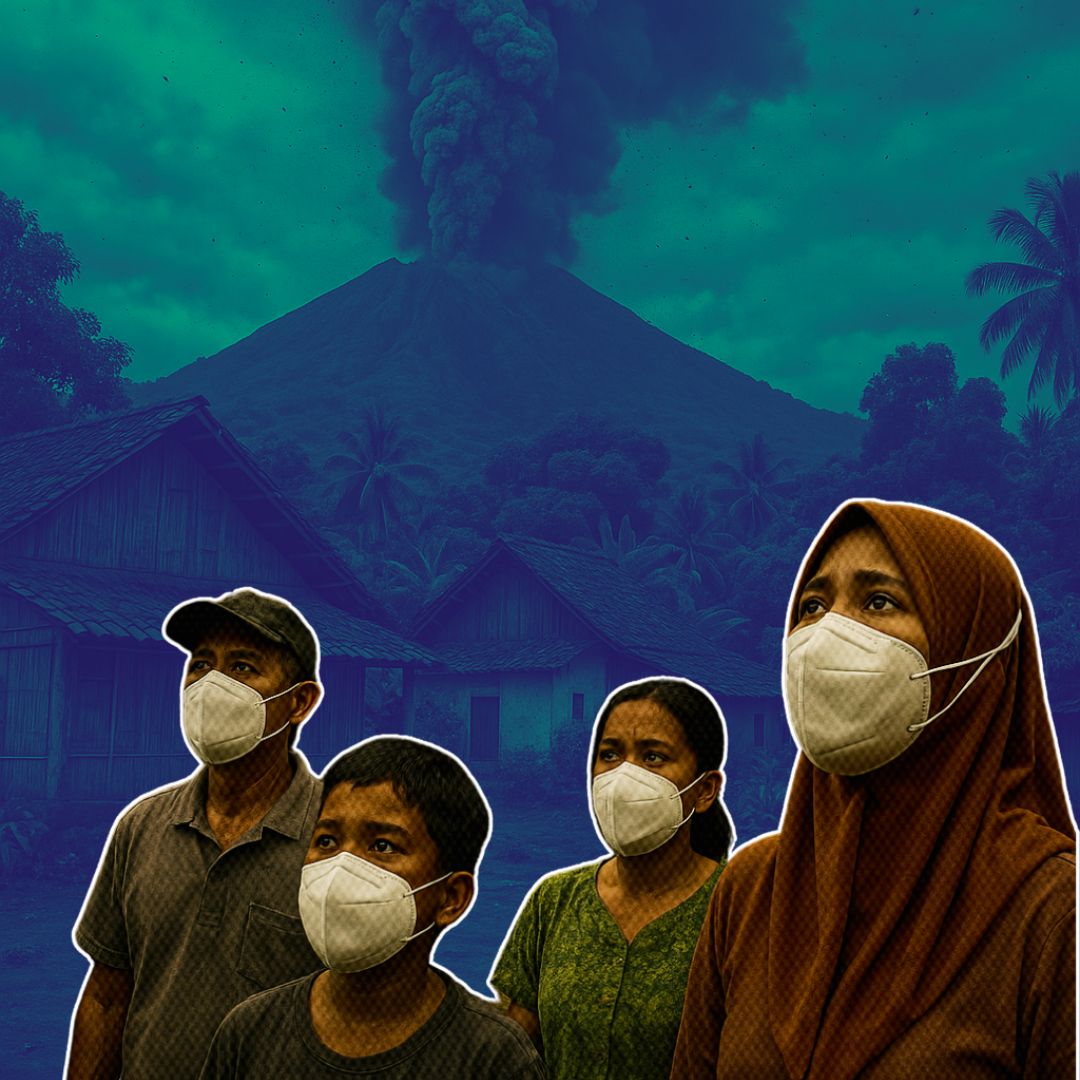At least two dozen flights to and from Bali have been cancelled following the eruption of Mount Lewotobi Laki-Laki, a 1,584-metre volcano on Indonesia’s Flores Island, on June 17. The eruption sent a towering ash plume soaring up to 10 kilometres into the atmosphere, prompting authorities to raise the volcano’s alert status to the highest level.
Airlines including Jetstar, Virgin Australia, Air India, and Singapore Airlines suspended flights to ensure passenger safety. Local authorities evacuated at least one village near the volcano due to ashfall, although no casualties or significant damage have been reported so far. Officials continue to monitor the situation closely, warning residents and travellers of ongoing risks.
Flight Disruptions and Community Impact
The eruption of Mount Lewotobi Laki-Laki caused widespread disruption to air travel, with more than 24 flights cancelled or delayed at Bali’s Ngurah Rai International Airport and other regional airports serving Flores and surrounding islands.
Major international carriers such as Jetstar, Virgin Australia, Air India, Air New Zealand, Singapore’s Tigerair, and China’s Juneyao Airlines were among those affected, cancelling flights to and from cities across Australia, Asia, and India. While the airport remains open, airlines have been forced to adjust schedules based on ash dispersion forecasts and aviation safety protocols.
The volcanic ash, carried by prevailing winds, settled over several villages surrounding the volcano, coating homes, crops, and roads with fine grey dust. Indonesia’s disaster mitigation agency (BNPB) reported the evacuation of at least one village late on June 17, with residents moved to safer locations outside the danger zone.
Local officials have urged people living within a 7- to 8-kilometre radius of the volcano to avoid outdoor activities and wear protective masks to prevent respiratory problems caused by ash inhalation. Schools in the affected areas have temporarily closed, and emergency response teams remain on high alert.
Ongoing Threats and Volcanic History
Mount Lewotobi Laki-Laki, part of a twin-volcano complex on Flores Island, is known for its volatile behaviour. The volcano’s recent eruption is notable for its intensity; within a span of just two hours, over 50 volcanic events were recorded—far exceeding the typical daily activity.
The resulting ash cloud, shaped like a mushroom, was visible from nearly 150 kilometres away, underscoring the eruption’s scale.
This volcano has a history of dangerous eruptions. In November 2024, a previous eruption caused nine fatalities and forced thousands to evacuate. Given this history, authorities have expanded the exclusion zone around the volcano to prevent casualties.
They have also issued warnings about potential lahar flows—fast-moving volcanic mudflows triggered by rainfall mixing with ash deposits—which could threaten downstream communities, especially those near rivers originating from the volcano’s slopes.
Indonesia’s geographical location on the Pacific “Ring of Fire” makes it one of the most volcanically active regions in the world, with 127 active volcanoes. The government continues to invest in monitoring technology and disaster preparedness to mitigate risks posed by such natural hazards.
The Logical Indian’s Perspective
The eruption of Mount Lewotobi Laki-Laki is a poignant reminder of the immense and unpredictable power of nature. While the swift response from authorities and airlines has helped protect lives and reduce disruption, the event highlights the ongoing vulnerability of communities living in volcanic regions.
The Logical Indian believes that fostering empathy, solidarity, and resilience is essential in the face of such natural disasters. We must support affected communities not only through immediate relief but also by encouraging long-term preparedness and sustainable development.
Moreover, this incident calls for a broader conversation about climate resilience and disaster risk reduction globally.
How can we, as a compassionate and interconnected society, enhance early warning systems, improve infrastructure, and raise awareness to safeguard those living in high-risk zones? What role can each of us play in promoting coexistence with nature’s forces while advocating for policies that prioritise human safety and environmental harmony?
Mount Lewotobi Laki-Laki in Indonesia erupted today, sending an ash plume soaring 10,000 meters above its peak — reaching a staggering 11,584 meters above sea level.
— Neha Khanna (@nehakhanna_07) June 17, 2025
In just two hours, the volcano unleashed nearly 50 eruptions, shaking the surrounding region.
Indonesia’s… pic.twitter.com/1Er1prQCx6












